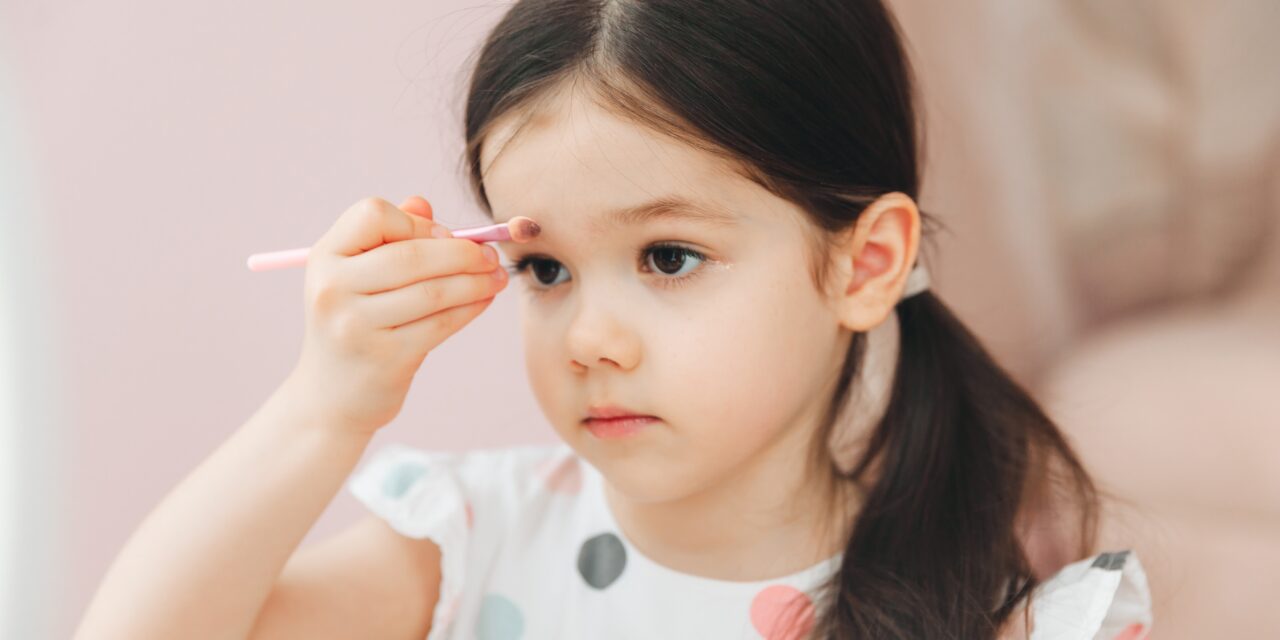Tween girls are taking over luxury-brand makeup stores, according to internet hype, causing wide-spread derision for the bizarre behavior of #sephorakids.
Named for the popular make up store, “Sephora kids” largely refers to unaccompanied nine- to 11-year-old girls shopping for luxury makeup and skincare products with their parents’ credit cards.
The phenomenon is inextricably linked to social media and the rise of beauty influencers, who share “get ready with me” videos explaining what beauty products they use. Young girls have started posting their own “grwm” videos, mimicking older influencers’ multi-step makeup and skincare routines.
Sephora kids tend to go after brands and products that have gone viral on TikTok, Sephora workers attest. The tweens also snap up potentially harmful anti-aging products, following influencers’ war against wrinkles.
This phenomenon disturbs me deeply, though I didn’t initially understand why. Don’t most young girls like to play with makeup?
After reflecting on my own tween-age experiences, I realize I am fundamentally uncomfortable with the way beauty influencer culture portrays womanhood.
I worry Sephora kids foreshadow the fearful, shallow identities a generation of young girls will grow into if they model their adult lives after carefully curated beauty influencer videos.
Like many, I remember fourth through seventh grade being confusing and uncomfortable.
In hindsight, I see I had a vague understanding I was leaving childhood behind, but had no idea what new, grown-up Emily should look like.
My classmates and friends filled in the gaps. I figured if I fit in with them, it meant I was on the right track to becoming grown-up Emily. Or at least I wasn’t alone on the wrong track.
Apparently, this desire to fit in means the pre-frontal cortex — the decision-making part of our brain — is developing normally. But it didn’t feel normal at the time. No matter what trend I followed, I never felt pretty enough, cool enough, or grown up enough.
For every obstacle I suffered in the late 2000s, I’m convinced today’s girls have it exponentially worse.
While my 500-some classmates shaped my early ideas of womanhood and beauty, theirs are influenced by an unlimited virtual pipeline of twenty-something “cool girls” selling miracle products and trends that change by the day.
I despair for tweenage-me because I didn’t understand my value as a child of God. I started believing my worth lay in my physical appearance and other people’s perceptions of me.
I think almost every young girl picks up roughly the same (flawed) cultural message about womanhood I did — that valuable women are pretty and popular. But living up to that standard looks different depending on when you grow up.
I was lucky — $10 Aeropostale t-shirts and cherry lip-gloss were my height of fashion. Though I rarely felt truly pretty, at least I didn’t feel like it was impossible.
So many girls today are learning beauty requires a six-step skincare routine and a full-face of makeup. If valuable girls are pretty — and being pretty requires $100-plus beauty products — imagine how many tweens spend every day feeling worthless.
It’s a crushing thought, made more horrifying by the knowledge that beauty influencers make money big peddling these products. The sneaky advertising and product placement in these videos make them even harder for vulnerable girls to resist.
Start by limiting social media, which automatically reduces the number of damaging messages your daughters and sons ingest.
I understand this may be an uncomfortable and contentious process. My parents didn’t let me get a cellphone when I was a tween, though I begged them incessantly — all the cool kids had them.
But take heart. Ten years later, I have thanked my parents for saving me from years of angst and trauma. Part of me wishes they’d waited even longer.
The presence and compassion of mothers and adult female role-models are also crucial during this turbulent time.
My mom’s discipleship and love anchored me when I was a tween, and all the confusing and unsure times since. She balanced the messages I received at school with the truth — that I was loved regardless of what I looked like; that I was valuable because God called me to Himself.
If you are a mom or adult female role-model, be present and compassionate with young women in their tweens. Explain and exemplify what it means to be a godly woman, and that God has greater plans for them than an overwhelming concern with beauty and the perceptions of others.
I don’t know if Sephora kids are as “feral” as some TikTok users describe them, but I’m intimately familiar with the damage twisted visions of womanhood can do to young girls. Those trips to Sephora aren’t doing them any good — and neither are the beauty videos inspiring them.
- Focus on the Family: Parenting Tweens
- Brio magazine for teen girls
- Helping Your Daughter Become a Confident Woman
- Launch into the Teen Years
- Talking to Your Daughter about Her Worth, Identity and Beauty
- Navigating Beauty and Body Image With Teen Daughters
- Discover the Beauty of Being Fearfully and Wonderfully Made






